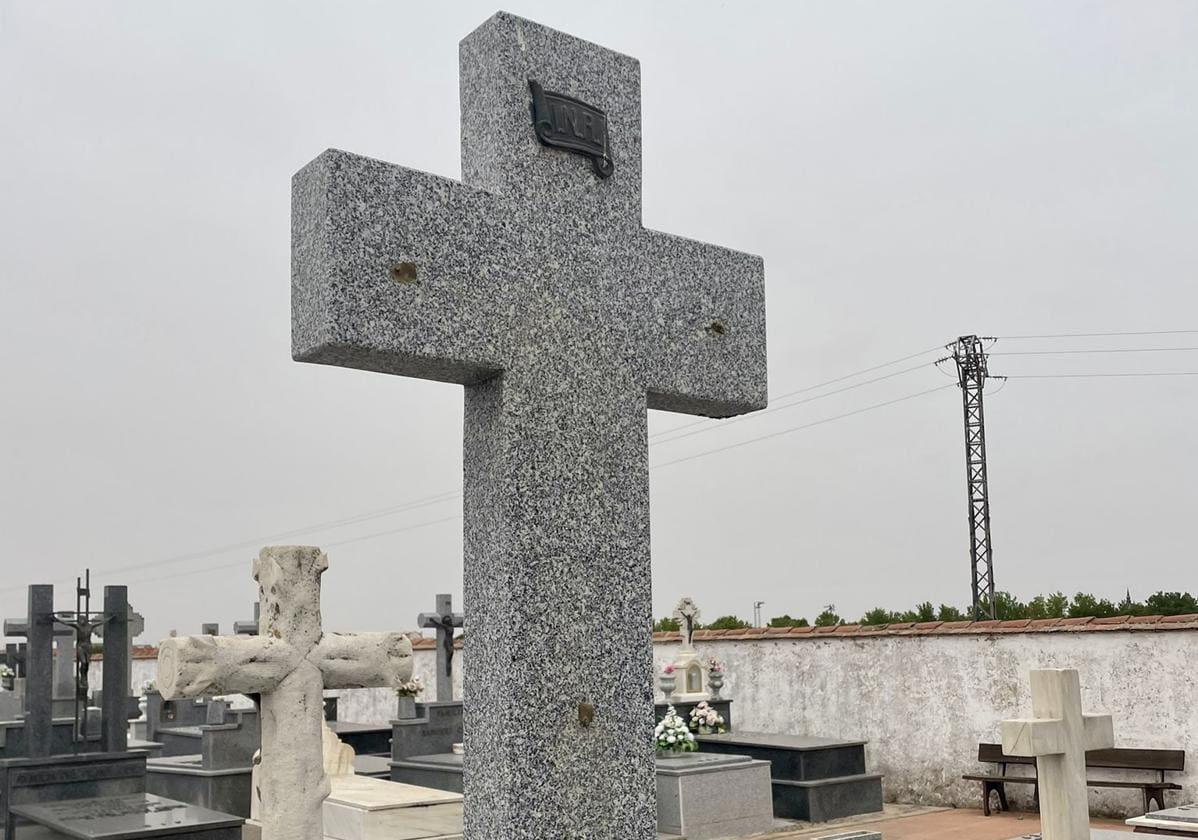Why has there been a wave of thefts of crosses and crucifixes from cemeteries in Spain's Toledo?
Police are reviewing security footage in an effort to track down those responsible for desecrating the graves
J.M.L.
Toledo
Sunday, 16 June 2024, 21:51
Cemeteries have become an easy target for gangs of thieves looking for bronze to remove from graves, mostly crosses, name plaques and handles, for quick disposal on the black market in scrap yards and waste management centres. Although the price of bronze is lower than that paid for copper - the latter has increased in value by more than 30% in the last year on the black market - it is still a sought-after metal, fetching between four and seven euros per kilo, depending on demand.
This explains the wave of thefts that in recent weeks has occurred in cemeteries in the province of Toledo in central Spain. The latest incident happened in the town of Torrijos, with a population of 13,000 inhabitants, where the thieves have taken 134 crosses and crucifixes. Torrijos town hall has reported it to the Guardia Civil and has encouraged affected families to do the same. Other towns in this province such as Lagartera, Cebolla, Lucillos, Erustes, Alberche and Gamonal have recently suffered the same criminal acts.
In Cebolla, where the thieves took 87 crosses, both the town's police and the Guardia Civil have reviewed footage from the six security cameras spread around this small town but no arrests have been made as yet. In Erustes, where 31 crosses have disappeared, the thieves got a headstart as the town hall was planning to install security cameras in the cemetery when the theft occurred. In most cases, according to investigators, the thieves access the cemeteries using the minor roads with little traffic in order to avoid being seen.
Coveted metal
If criminal gangs have recently opted to steal bronze from graves, it is because the access to cemeteries, so often located on the outskirts of our towns and villages, is relatively easy. Above all, however, they steal because this metal is so in demand on the black market. Bronze - an alloy of copper and tin that can also contain some aluminium, nickel or zinc - is considered to be a very versatile metal that stands out for its conductivity, its resistance to corrosion and friction, its durability and its characteristic golden colour.
This is why bronze is widely used in the automotive and construction industries as well as being put to many decorative uses. Its value changes depending on the purity of the material, the international prices on the London Metal Exchange and the level of demand at any given time. For now its price is so attractive that criminal groups have chosen cemeteries as their preferred location.
